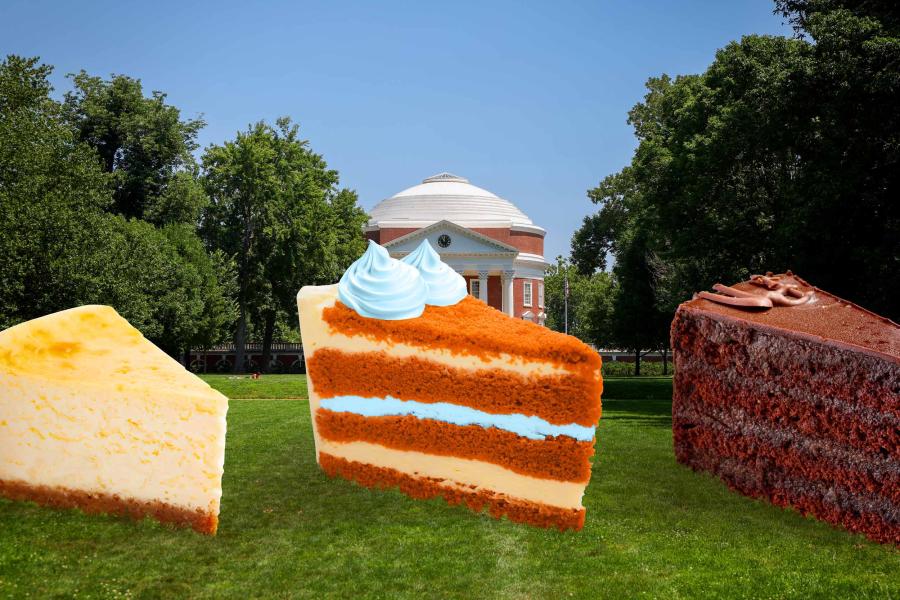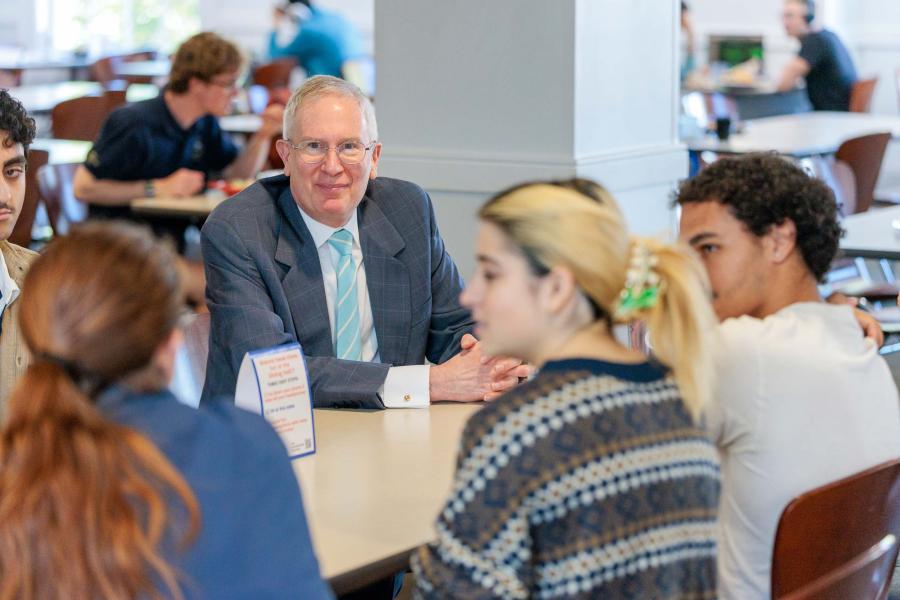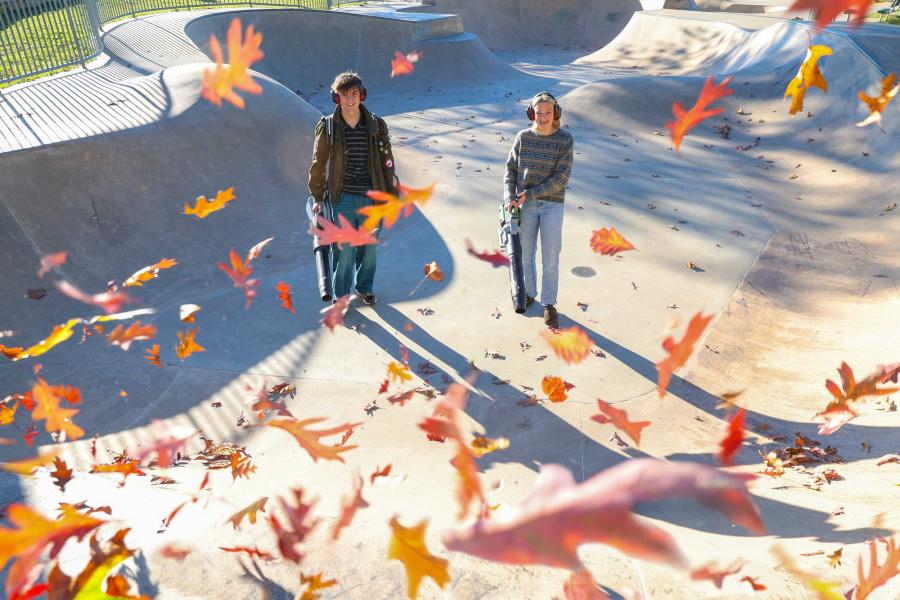Fernando Valverde is taking his students on a journey into the past.
Valverde talks in rapid-fire Spanish, moving his arms and using his fingers to emphasize a point. His students, seated before him in a semicircle, respond in less confident Spanish. Aside from the voices, the only sound in the room is the soft scratch of students taking notes with pencils.
Valverde has banned technology from his University of Virginia classroom in hopes of unleashing the students’ imaginations. Mobile telephones, laptops and ballpoint pens are banished. Students are limited to technology invented during or before the 19th century.
Even examinations and papers are handwritten, although Valverde said correcting them can be difficult since primary schools no longer teach penmanship.
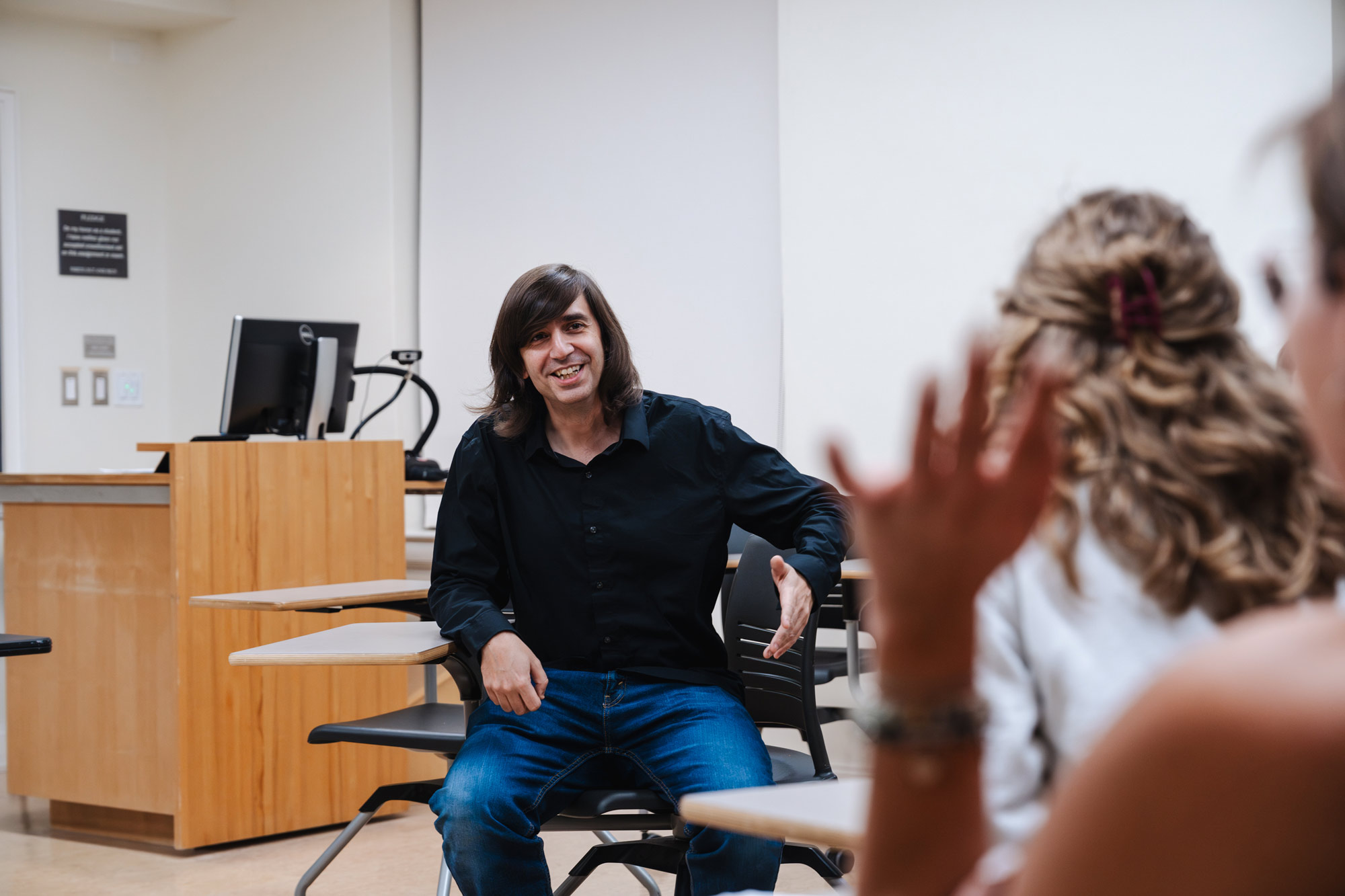
Several students said the lack of technology allowed in the classroom lets them to focus more on Valverde during his lectures. (Photo by Emily Faith Morgan, University Communications)
“Our students and myself, we are addicted to the technology,” Valverde said, hefting his mobile telephone disdainfully. “Addicted all the time to the screen.”
An award-winning poet, Valverde teaches in the Department of Spanish, Italian & Portuguese. He fears that technology is increasing social isolation and stunting imaginations.
“[Percy Shelley] wrote that imagination is the main tool for moral goodness,” Valverde said.
Valverde said he came up with the idea of the technology-free classroom after realizing his young son preferred screen time to playing with toys, and first implemented it last year. It is more important, Valverde said, for the students to be corrected by a mentor than a prompt on a machine.
“Fernando’s ambition to deeply connect with each student and to craft an environment that’s free from distractions has allowed us to truly immerse ourselves in the root of the content,” student Moises Luna Tubbs wrote in an email. “I truly look forward to every class knowing that I’ll leave Grounds at night with more passion and intrigue, constantly invigorated by his ability to make us see the beauty and value in connecting through art, language and genuine interaction.”
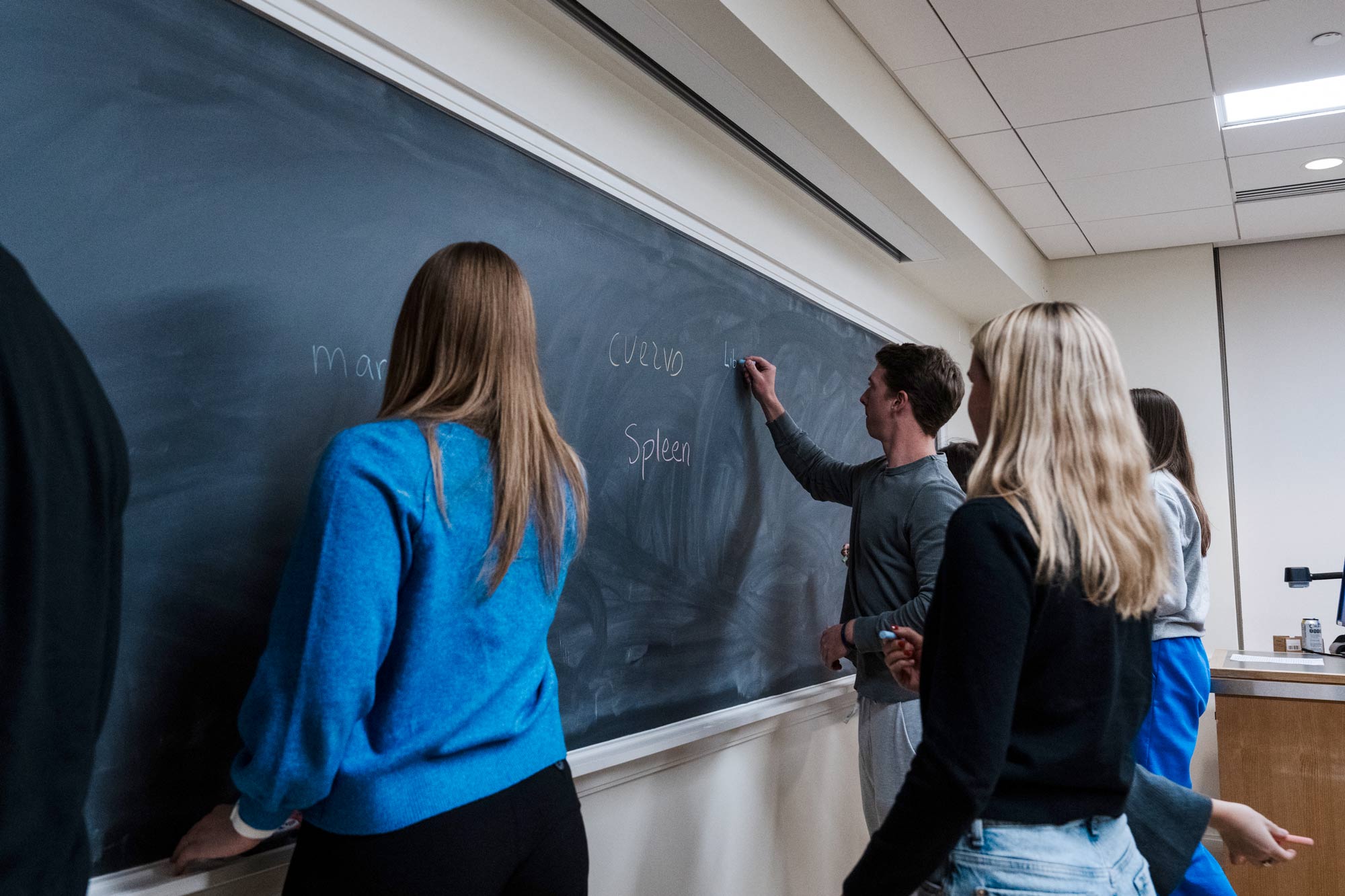
Students write on the chalkboard during a no-technology Spanish class on 19th-century poets. (Photo by Emily Faith Morgan, University Communications)
Tubbs, a fourth-year student in the Spanish distinguished major program, sees value in reducing his tech use. “I’ve learned to embrace silence, patience and even the process of sitting with uncertainty, which has been one of the most unexpectedly rewarding aspects of this experience,” he wrote.
Valverde, a native of Andalucia, Spain, has been in the United States for 10 years. Armed with a doctorate in literature, he has studied toward a second doctorate in education. He taught at North Georgia University and then at Emory University in Atlanta.
The author of more than 20 books, including poetry and biographies, written in more than 10 languages, he was nominated for a Latin Grammy in 2014 for lyrics he wrote for a flamenco album.
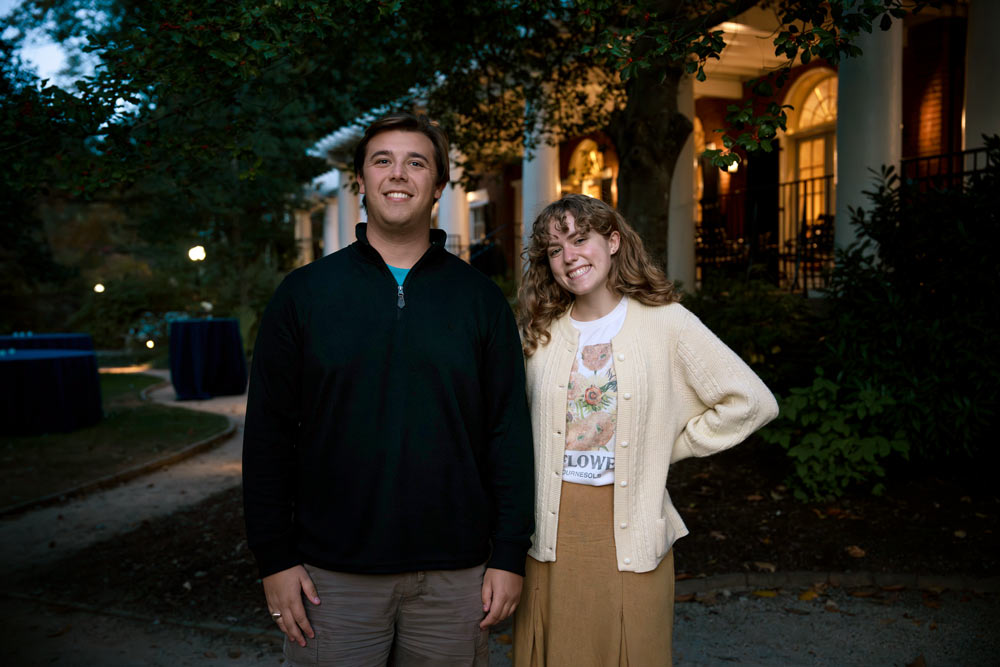
Tommy Tayman, left, a Spanish and biology major, finds the no-tech aspect of the class isolating, while Amelia Pearson, a double-major in Spanish and global security and justice, started hand-writing notes in some of her other classes. (Photo by Emily Faith Morgan, University Communications)
Valverde was also a journalist for the Spanish newspaper El Pais, a special correspondent writing about areas where conflicts occurred, such as Kosovo, Palestine and Bosnia even as he continued to write poetry. He was the founder and former director of the International Festival of Poetry in Granada, an important literary event in Europe, which has featured several Nobel Prize laureates.
He first came to UVA as a distinguished visiting professor. After a semester, he was offered a position in the Department of Spanish, Italian & Portuguese.
Department head Enrico Cesaretti said Valverde has total control over how he teaches his courses.
“His class made perfect sense to me, as it was thoughtfully and meticulously planned with clear pedagogical objectives in mind,” Cesaretti said.
Valverde’s no-tech method has served its purpose, his students say.
“It’s a break from being online and getting emails and notifications,” said Amelia Pearson, a fourth-year student double-majoring in Spanish and global security and justice. “It’s also always really interesting because I never really know what he’s going to be talking about, which keeps me engaged.”
It has even altered Pearson’s approach to other classes.
“I’ve started using notebooks and pens instead of my computer, just because I realized I pay a lot more attention when I’m not on a computer,” she said. “But other than that, I still need my phone and my laptop.”
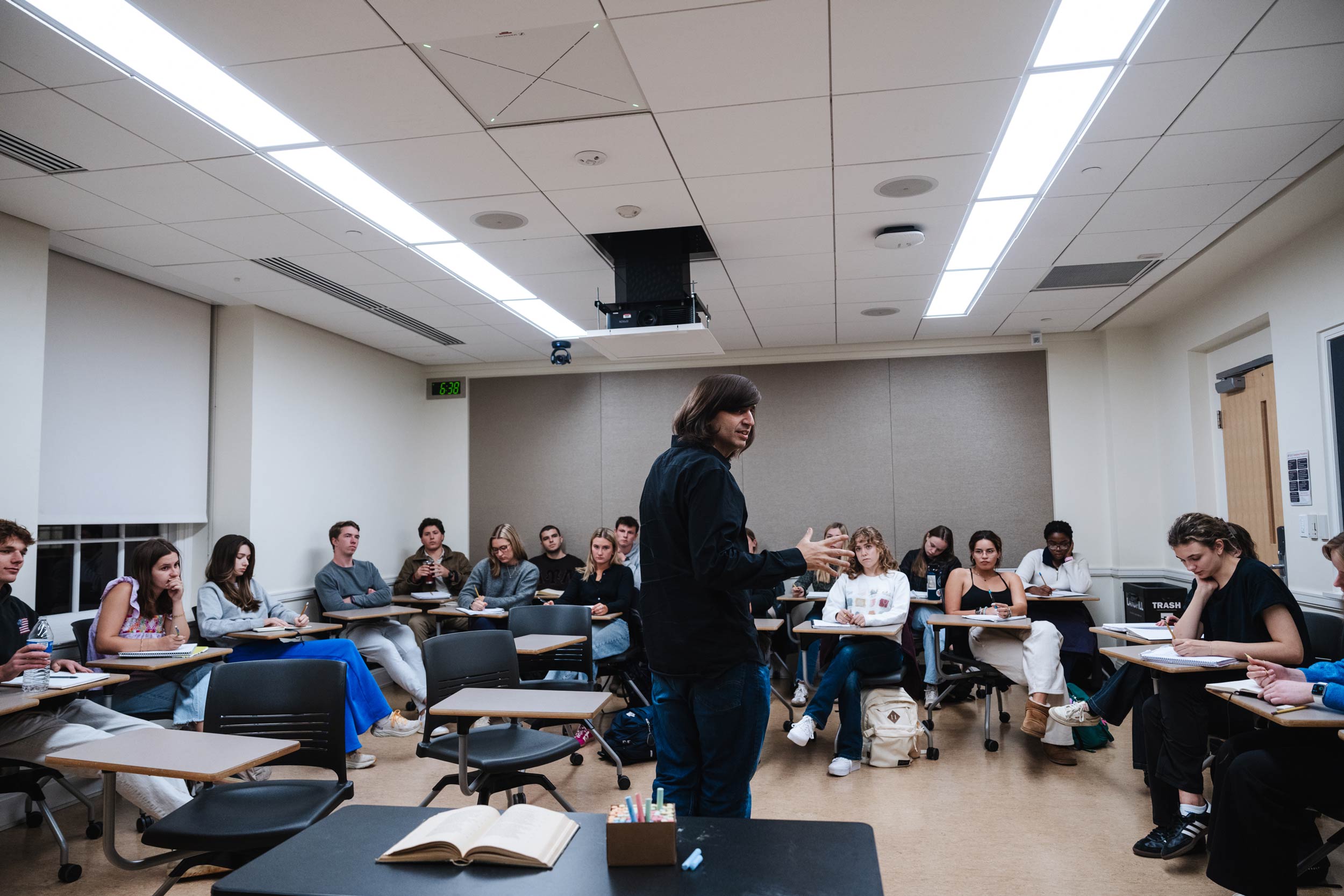



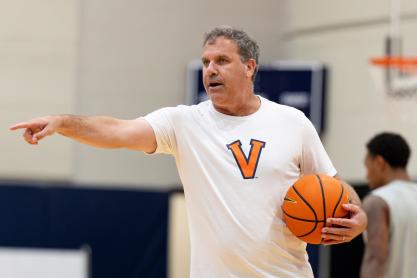


.jpg)
